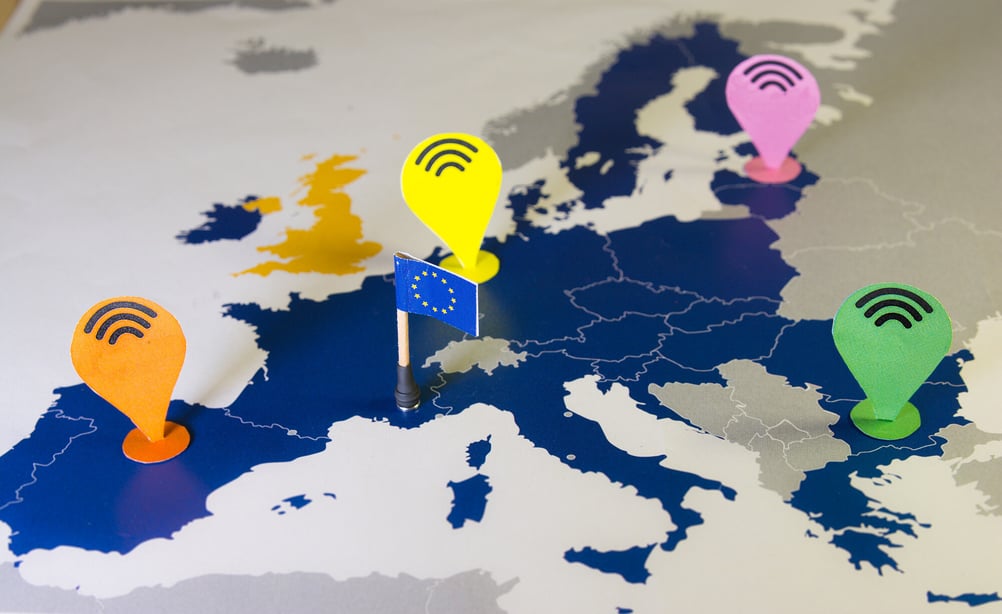Europe prepares for ViDA, but Sweden is silent

While several EU countries are ready to legislate on mandatory e-invoicing for businesses and public authorities - and other countries already have such laws - Sweden is still at a standstill. A petition addressed to the government is still pending despite the fact that the letter is almost two years old.
But perhaps the approval of the European Commission's reform package (ViDA), which means that the VAT Directive is adapted to today's digital technology, will make things happen in our country too.
The governmental SFTI (Single Face To Inudstry) is the collaborative office in Sweden for a digital and standardized purchasing process in the public sector. In mid-November, this converging technical unit held a digital seminar. The agenda included the latest on the adopted EU package VAT In the Digital Age and how the Swedish Tax Agency views the renewal of the VAT Directive and the provisions included in the reform. The agency was represented by Fredrik Andersson Carlö, team leader for the development theme of transaction-based reporting and mandatory e-invoicing.
Survey from Digg
But before we get to Fredrik's presentation, we can note that Digg, the Swedish Agency for Digital Government, took an initiative in the past few days that will be interesting to see the outcome of. Digg sent out a survey to the country's government agencies, municipalities and regions with questions about e-commerce and e-invoicing.
"We expect to be able to publish the results of the survey in February 2025," writes Anderz Petersson on LinkedIn.
Anderz is a specialist at Digg on public e-commerce.
No obligation
The data collected by Digg will be a thermometer of how keen government agencies in Sweden are on electronic document management. However, we have no indication of how eager the government is. According to a source who has contacted the Government Offices, they want to wait until the ViDA proposal has been approved before they intend to act.
Now that this decision is a fact, the time should reasonably be right to consider the request that the Swedish Tax Agency, the Swedish Companies Registration Office and Digg addressed to the government in February 2023. In that letter, the government was urged to urgently appoint an investigator with the task of examining the conditions for making it mandatory for companies and public administration to use e-invoices.
However, there is no guarantee that the matter will be taken up at all.
"The government is under no obligation to respond to a request, but we hope that they will do so," says Petersson.
Five-year window
Despite the lack of response, the authorities mentioned are still working on the assumption that mandatory e-invoicing will happen sooner or later.
"We have stated in our consultation response that we want a national implementation of mandatory e-invoicing. We also hope that we can have a dialog with the Ministry of Finance when they prepare the national implementation of ViDA", says Fredrik Andersson Carlö at the Swedish Tax Agency.
From July 2030, the digital reporting requirement will apply to cross-border transactions within the EU. After that, the other components of ViDA will be planted in the following years until the entire reform is implemented in 2035.
"But ViDA does not answer all questions", Fredrik points out. "For example, it does not answer how the e-invoicing networks and systems will communicate with each other. Some things will have to be solved by national legislation or perhaps by the market."
"We can also expect some answers via the follow-up work that usually takes place in terms of legislation in the EU. For example, in the form of Explanatory Notes that will clarify certain things that are not clear at present", he adds.
Anderz Petersson:
"We now have a great window with five years of preparation time. That's the length of time we need to make these kinds of changes. Now we are really just waiting for Sweden to position itself in this."
But what is it that needs to take five years?
"I would say that there is a major transition, especially for a large part of society, in what is now waiting in the form of system changes and also how the data will be transported. For example, if there is to be a node at the Swedish Tax Agency, there will be major demands on all the systems that need to be involved. In addition, there are still things that are not clarified by ViDA," says Anderz Petersson.
Two points of view
Niklas Andersson, Product Manager at Inexchange, thinks that the decision-making process is unnecessarily slow in Sweden.
"It is only Sweden that is talking about the years set out by ViDA (2030-2035). Other countries have been at it for a long time. Belgium had an early introduction of e-invoicing legislation, which is now being extended to 2026. France, Poland and Spain have also been at it for a long time. In addition, several countries have had incorporated legal requirements for many years. In Sweden, we have the law on e-invoices for the public sector, which came in 2019. Since then, nothing has happened. The only thing that exists is a petition that has lain untouched for almost two years."
But Niklas is tackling the government's inertia with maintained calm.
"You have to look at it in two ways. Sure, Sweden has no legal requirement, but we also have a fairly high degree of e-invoicing. This means that it is very much up to us as system suppliers to get more spread and demonstrate the benefits. Mandatory e-invoicing gives a boost, of course, but I don't want to be dependent on a legal requirement for us to expand e-invoicing. It's a good tool, absolutely, but we have every opportunity to work to increase the degree of e-invoicing in many different ways," he says.
What is ViDA?
VAT in the Digital Age
In this guide, you will receive an introduction to ViDA, the EU's initiative for digital VAT reporting. Please note that the guide is in swedish.



